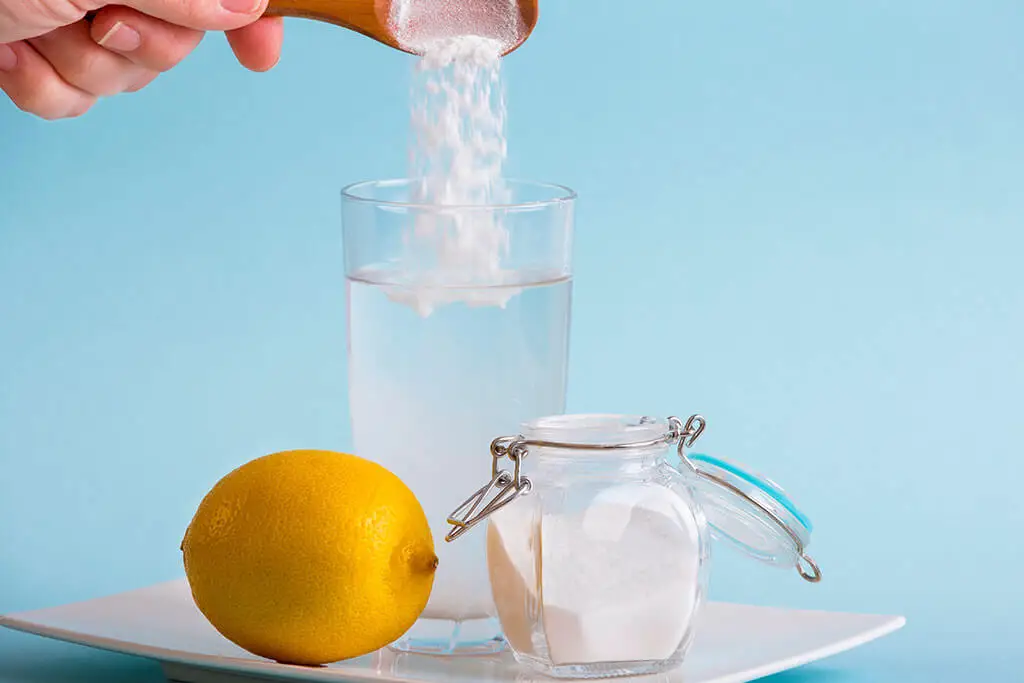24 Healthy New Year's Resolutions that You Can Actually Keep


Reviewed and approved by the doctor Leonardo Biolatto
New Year’s resolutions often focus on adopting healthier habits. Most people see the beginning of the year as an opportunity to leave behind those bad habits that compromise their well-being.
However, as detailed in research reported in Social Behavior Research and Practice, about 77% of those who make these goals tend to give up in less than a month. Unrealistic projections, the failure to set specific goals, and the implementation of many sudden changes often contribute to this problem.
Hence the fact that some people make the same promises year after year, without really sustaining them over time. But is it possible to break this cycle, and is there a strategy to make real changes and not fail in the attempt? Of course there is! Here’s a list of healthy New Year’s resolutions that you can actually keep.
Healthy New Year’s resolutions that you can keep
Making New Year’s resolutions is a common activity in many countries around the world. In the United States, for example, 44% of citizens set such goals for the following year. Most of them have to do with health, such as losing weight, giving up bad habits, or adopting an exercise routine.
The downside? Only a small percentage actually achieve their goals by the end of the year. Evidence suggests that people are not particularly good at keeping New Year’s resolutions. The problem almost always lies in poor planning and a tendency to fall into “all or nothing.”
It’s important to keep in mind that, rather than “keeping a resolution,” it’s about adopting new habits to maintain over time.
So, keep in mind that changes should be implemented gradually without falling into unsustainable restrictions or measures. It’s better to start with some small adjustments in your routine and concrete habits that can be applied day by day.
Like this article? We think you may also enjoy reading: Healthy Habits to Instantly Boost Your Energy Levels
1. Increase your consumption of fruits and vegetables
As far as food is concerned, one healthy resolution for the New Year is to increase the intake of fruits and vegetables. The recommendation is to ensure the intake of at least five servings a day to take advantage of their nutrients.
As detailed in a review of the Iranian Journal of Public Health, an optimal consumption of these foods is associated with a decrease in body weight and prevention of chronic diseases such as cardiovascular disease, cancer, diabetes, osteoporosis, and respiratory problems, among others.
- All varieties of fruits and vegetables have a place in the diet. The consumption of whole pieces is recommended to make the best use of their properties. Other cooking methods, such as boiling or steaming, are also recommended.
- To ensure their daily consumption, be sure to plan the recipes or meals in which you can include them. Also, keep in mind the variety that you are going to consume per day. Remember: the more concrete the goal, the more likely you are to achieve it.

2. Eat more whole foods
Another simple way to improve your diet, without making drastic changes in your diet, is to incorporate more whole foods. Whole grains, seeds, and nuts all contain nutrients that contribute to increased physical and mental well-being.
Research shared through the Journal of Chiropractic Medicine concludes that this variety of food is beneficial for the prevention of type 2 diabetes, cardiovascular disease, and colorectal, pancreatic and gastric cancers.
- It’s recommended to consume 2 or 3 servings per day, each of about 45 grams.
3. Avoid the consumption of ultra-processed foods
Reducing your consumption of ultra-processed foods as much as possible is key to both achieving a healthy weight and promoting overall wellness. According to a publication in the journal Nutrients, this variety of products is linked to an increased risk of obesity and non-communicable diseases.
Type 2 diabetes, cardiovascular disease, cancer, depression and all-cause mortality are the main consequences of regularly ingesting this variety of foods.
To be more precise, this includes precooked foods, sugary drinks, processed meats, industrial pastries, packaged snacks, desserts, and refined grains, among others.
4. Limit your consumption of alcoholic beverages
A punctual and moderate consumption of alcoholic beverages does not usually have a major impact on health. The problem arises when they start to be consumed regularly and excessively, which does lead to problems.
Research shared through Alcohol Research & Health details that alcohol is an underlying cause of more than 30 diseases. In addition, it is a risk factor for complications for many others.
Specifically, it links to the following:
- Cancer
- Diabetes
- Infectious diseases
- Cardiovascular diseases
- Hepatic and pancreatic disorders
- Intentional and unintentional injuries
- Neuropsychiatric diseases (including alcohol use disorders)
What to do, then? If possible, your consumption of these beverages should be avoided altogether. However, it’s possible to start with a more reasonable goal, such as drinking only on one day of the weekend or on a special occasion.
5. Start drinking more water
70% of the body’s composition is water. Therefore, it’s an indispensable element to ensure the proper functioning of your major systems. Nutrition Reviews magazine details that water plays an important role in the prevention of non-communicable diseases, thermoregulation, and cognitive performance.
It also plays a role in gastrointestinal and kidney function, skin health, and cardiac function. A Mayo Clinic publication suggests that men should drink about 3.7 liters of water per day and women should drink about 2.7 liters.
The recommended amount may vary depending on your physical activity level, health status, and age, among other factors.
6. Choose healthier cooking methods
New Year’s resolutions should be quite concrete; therefore, as far as diet is concerned, it’s a good idea to remember the importance of choosing healthy cooking methods.
Boiling, roasting, steaming and air frying are postulated as the best options, since they allow for maintaining the nutritional quality of the food without the need to use added fats or too high temperatures.
7. Cooking more at home
A research shared through the International Journal of Behavioral Nutrition and Physical Activity concluded that home-cooked meals ensure better dietary quality and a decrease in adiposity.
It was observed that eating 5 or more home-cooked meals a week decreases the probability of being overweight by 28% compared to those who only eat at home 3 times a week.
If there’s a lack of time to cook, it’s possible to start by preparing one of the meals of your day. Another option is to plan your weekly menu and dedicate one day to preparing most meals and snacks.
8. Choose a balanced and sustainable eating plan
It’s possible that one of your healthy New Year’s resolutions is weight loss. That’s why January often sees the adoption of various meal plans that promise to help you lose several pounds in a matter of weeks. And although it seems tempting, this is not the best option.
Fad diets or “miracle diets” bring with them health consequences. Although at first they may seem to work, they later trigger food cravings, nutritional deficiencies, and an increase in weight even more than you already had.
If possible, you should consult a nutritionist to obtain an eating plan according to your individual characteristics. In general, it’s best to opt for those diets that guarantee an optimal contribution of all groups of micro and macronutrients. In addition, this should be varied to facilitate adherence.
9. Move more
Avoiding a sedentary lifestyle at all costs should be one of the objectives for the New Year. Although many ignore it, inactivity is one of the main triggers of diseases associated with an increased risk of mortality.
And although the adoption of a physical exercise routine is the most efficient way to avoid these effects, other measures to move more also help. For example, this could be as easy as walking 15 minutes after lunch; taking short 5-minute walks every hour, taking the stairs instead of the elevator, and so on.
We think you may also enjoy reading this article: What is Healthy Selfishness and How Can You Practice It?
10. New year’s resolutions: Spend more time outdoors
Something as simple as spending more time outdoors can really contribute to wellness. A publication in Health Place concludes that spending time in outdoor environments, especially green spaces, decreases stress, improves mood, and regulates heart rate.
Meanwhile, a recent study shared in The World Journal of Biological Psychiatry revealed that time spent outdoors has positive effects at the brain level, particularly on gray matter volume in the right dorsolateral prefrontal cortex and positive affect.
Walks to the garden at lunchtime, hiking in a forest on the weekend, going camping or any visit to a natural environment will be beneficial.
11. Limit your screen time
Something not to be overlooked in the list of healthy New Year’s resolutions is to decrease screen time. That is, limit the use of devices such as phones, computers, and televisions, among others.
While many rely on these devices for work, communication, or entertainment, their excessive use is linked to increased depression, anxiety, stress, and feelings of loneliness.
12. Meditate
Meditation has become one of the most efficient resources to reduce stress, anxiety, depression, and other mood disorders. Hence, many recommend its daily practice as a habit to increase the feeling of well-being.
The most interesting thing is that it does not require much practice time or experience. If you want to make it one of your healthy New Year’s resolutions, you can orient yourself with podcasts, books, mobile apps, videos, etc.

13. Enjoy hobbies
Routine and hectic lifestyles can prevent you from enjoying your favorite hobbies. However, it’s important to make time for enjoyment and leisure. Evidence associates participation in hobbies with longevity and a healthier life expectancy.
14. Take care of your dental health
Few people think about their dental health when talking about wellness. Therefore, one of the healthy New Year’s resolutions will be to reinforce the care of the mouth. First of all, it is convenient to request a consultation with the dentist, at least every 6 months.
The professional will observe if treatments are required to avoid or treat diseases such as cavities, gingivitis, and periodontitis, among other conditions. It’s also necessary to ensure the practice of healthy habits, such as proper brushing (at least 3 times a day), and the use of dental floss and mouthwash.
15. Visit the doctor
The need to consult the doctor regularly depends on your age, history of diseases, and family history, among other factors. However, it’s recommended to request at least one annual checkup.
So, if you have gone several years without consulting – or if you have never gone at all -, it’s time to include it in your New Year’s resolutions. Through tests such as blood tests, urine tests, and imaging tests, among others, the specialist can detect any anomalies that may compromise health in time.
16. New year’s resolutions: Improve the quality of your sleep
A large number of health problems are related to poor sleep quality. Metabolic disorders, depression, heart disease, and poor cognitive performance are just a few examples.
There are several reasons why many people do not get enough sleep: worries, leading a hectic lifestyle, work, and consumption of stimulants, among others. To address this problem, remember that the ideal is to sleep between 7 and 8 hours a day without interruptions.
Therefore, it’s advisable to ensure a comfortable sleeping environment away from distracting elements (cell phones, computers, televisions, and the like) and whose lighting can be adjusted. It also helps to respect sleep schedules and avoid caffeine consumption.
17. Read more books
The habit of reading is related to a longer life expectancy. In fact, reading books on a regular basis strengthens memory and helps prevent age-related cognitive decline.
How about making a resolution to read more next year? You don’t exactly have to “devour” books. A chapter or two a day will also be beneficial.
18. Quit smoking
Perhaps this is one of the hardest healthy New Year’s resolutions to keep. Giving up smoking is not easy, since it’s often accompanied by anxiety and other withdrawal symptoms. So why do it?
Well, it has been proven that smoking causes serious side effects on health, such as lung, liver, and colorectal cancer. It also increases your risk of respiratory and cardiovascular diseases, among many other effects.
There are many resources available right now to help you quit smoking. Consulting a doctor is the first step. The professional can provide guidance on methods such as nicotine replacement therapy, psychotherapy, relaxation techniques, and maybe even some medications.
19. Go to therapy
Everything associated with mental health is no longer a taboo subject. That’s why more and more people are interested in seeking psychological therapy. In all its forms, this intervention improves problem-solving skills, your ability to manage your emotions, and self-confidence.
Psychotherapy is a way of encouraging people to take responsibility for their own actions and, above all, to learn how to manage mental health problems that prevent them from enjoying a good quality of life.

20. Lift weights
Any form of physical activity or sport can significantly improve health. However, weight training provides additional benefits that are worth taking advantage of. Incorporating these elements into your exercise routine improves physical endurance and helps build muscle.
In fact, as detailed in a study shared in Current Sports Medicine Reports, this type of training is helpful in reducing lower back pain and discomfort associated with conditions such as arthritis and fibromyalgia. At the same time, it promotes cardiovascular health, prevents diabetes, and helps in the loss of visceral fat.
Like other exercise modalities, its practice should be done according to your current physical condition. Ideally, it’s best to start with little weight and increase as endurance increases.
Like this article? You may also enjoy reading: Strategies to Promote Healthy Habits in Teens
21. New year’s resolutions: Adopt a skincare routine
It’s not about buying the most expensive skin care products. Still, it pays to adopt a basic routine to promote your health and aesthetics.
A publication in Nursing for Women’s Health states that the most important thing to remember is the following:
- Use a daily topical moisturizer.
- Eat a balanced diet, abundant in antioxidants.
- Ensure optimal hydration, not only with external products, but also through daily water consumption.
- Wear broad-spectrum sunscreen, even on cloudy days.
- Avoid smoking.
In addition to the above, it’s worth remembering the importance of exfoliating (maximum 2 times a week) and removing make-up before going to bed. These are simple measures that will make a difference in skin health.
22. New year’s resolutions: Do one thing at a time
One of the reasons why many fail to keep their healthy New Year’s resolutions is that they want to do everything at once. Both in January and in the first days of February there is often a desire to eat well, exercise, meditate and make a myriad of changes all at the same time.
However, this often leads to overwhelm and failure. Multitasking is not synonymous with being more efficient. In fact, it causes the opposite effect.
By making it impossible to do everything correctly, it leads to a greater sense of stress and anxiety. In the end, it’s more likely to abandon the goal rather than to complete it.
It’s best to plan activities and implement changes little by little. Doing one thing at a time improves the adaptation process and adherence to new habits.
23. Do activities to stimulate your brain
Any time is a good time to start activities that help stimulate brain function. Whether it’s reading a book, learning a new language, taking dance classes, playing board games, or attending painting classes, there’s a wide range of options to “train” the brain.
The benefits? Increased sense of well-being, longer life expectancy, optimized learning processes, better self-esteem, and less risk of neurodegenerative diseases.
24. Use healthier cleaning products
Choosing eco-friendly and natural cleaning products not only has a positive impact on the environment but also on health. Evidence suggests that exposure to chemicals in conventional cleaners can lead to respiratory problems, adverse effects on skin health, and eye discomfort.
Fortunately, natural versions of almost all household cleaning products are available, from detergents to fabric softeners and air fresheners. In addition, white vinegar, baking soda, and diluted essential oils are good allies.

Are you going to apply these healthy New Year’s resolutions?
Defining healthy New Year’s resolutions is a way to move yourself toward a healthier lifestyle. The beginning of a new year is a great opportunity to leave behind those things that may be harming health and well-being. However, you also need to change your mindset.
Often, many people implement these changes during the first few weeks of the year and lose enthusiasm later on. Therefore, rather than talking about resolutions to be fulfilled, we must understand that they are habits to be adopted. This is the best and only way to make a real impact.
All cited sources were thoroughly reviewed by our team to ensure their quality, reliability, currency, and validity. The bibliography of this article was considered reliable and of academic or scientific accuracy.
- Mandal, S. (2019). How to Make Your New Year’s Resolutions Work? In Social Behavior Research and Practice – Open Journal (Vol. 4, Issue 2, pp. 28–29). Openventio Publishers. https://doi.org/10.17140/sbrpoj-4-119
- Oscarsson, M., Carlbring, P., Andersson, G., & Rozental, A. (2020). A large-scale experiment on New Year’s resolutions: Approach-oriented goals are more successful than avoidance-oriented goals. In J. C. Brown (Ed.), PLOS ONE (Vol. 15, Issue 12, p. e0234097). Public Library of Science (PLoS). https://doi.org/10.1371/journal.pone.0234097
- Dickson, J. M., Moberly, N. J., Preece, D., Dodd, A., & Huntley, C. D. (2021). Self-Regulatory Goal Motivational Processes in Sustained New Year Resolution Pursuit and Mental Wellbeing. In International Journal of Environmental Research and Public Health (Vol. 18, Issue 6, p. 3084). MDPI AG. https://doi.org/10.3390/ijerph18063084
- Pem D, Jeewon R. Fruit and Vegetable Intake: Benefits and Progress of Nutrition Education Interventions- Narrative Review Article. Iran J Public Health. 2015 Oct;44(10):1309-21. PMID: 26576343; PMCID: PMC4644575.
- McRae MP. Health Benefits of Dietary Whole Grains: An Umbrella Review of Meta-analyses. J Chiropr Med. 2017 Mar;16(1):10-18. doi: 10.1016/j.jcm.2016.08.008. Epub 2016 Nov 18. PMID: 28228693; PMCID: PMC5310957.
- Biddle SJ, Bennie JA, Bauman AE, Chau JY, Dunstan D, Owen N, Stamatakis E, van Uffelen JG. Too much sitting and all-cause mortality: is there a causal link? BMC Public Health. 2016 Jul 26;16:635. doi: 10.1186/s12889-016-3307-3. PMID: 27456959; PMCID: PMC4960753.
- Gramza-Michałowska A. The Effects of Ultra-Processed Food Consumption-Is There Any Action Needed? Nutrients. 2020 Aug 24;12(9):2556. doi: 10.3390/nu12092556. PMID: 32846915; PMCID: PMC7551378.
- Pagliai G, Dinu M, Madarena MP, Bonaccio M, Iacoviello L, Sofi F. Consumption of ultra-processed foods and health status: a systematic review and meta-analysis. Br J Nutr. 2021 Feb 14;125(3):308-318. doi: 10.1017/S0007114520002688. Epub 2020 Aug 14. PMID: 32792031; PMCID: PMC7844609.
-
Rehm J. The risks associated with alcohol use and alcoholism. Alcohol Res Health. 2011;34(2):135-43. PMID: 22330211; PMCID: PMC3307043.
-
Popkin BM, D’Anci KE, Rosenberg IH. Water, hydration, and health. Nutr Rev. 2010 Aug;68(8):439-58. doi: 10.1111/j.1753-4887.2010.00304.x. PMID: 20646222; PMCID: PMC2908954.
-
Rodríguez-Ayala M, Sandoval-Insausti H, Bayán-Bravo A, Banegas JR, Donat-Vargas C, Ortolá R, Rodríguez-Artalejo F, Guallar-Castillón P. Cooking Methods and Their Relationship with Anthropometrics and Cardiovascular Risk Factors among Older Spanish Adults. Nutrients. 2022 Aug 20;14(16):3426. doi: 10.3390/nu14163426. PMID: 36014932; PMCID: PMC9414627.
- Madhav KC, Sherchand SP, Sherchan S. Association between screen time and depression among US adults. Prev Med Rep. 2017 Aug 16;8:67-71. doi: 10.1016/j.pmedr.2017.08.005. PMID: 28879072; PMCID: PMC5574844.
- Goyal M, Singh S, Sibinga EM, Gould NF, Rowland-Seymour A, Sharma R, Berger Z, Sleicher D, Maron DD, Shihab HM, Ranasinghe PD, Linn S, Saha S, Bass EB, Haythornthwaite JA. Meditation programs for psychological stress and well-being: a systematic review and meta-analysis. JAMA Intern Med. 2014 Mar;174(3):357-68. doi: 10.1001/jamainternmed.2013.13018. PMID: 24395196; PMCID: PMC4142584.
-
Linden J, Josefsson K, Widström E. Frequency of visits and examinations in the Public Dental Service in Finland – a retrospective analysis, 2001-2013. BMC Oral Health. 2017 Nov 28;17(1):138. doi: 10.1186/s12903-017-0436-8. PMID: 29183308; PMCID: PMC5706397.
-
Hockey PM, Marshall MN. Doctors and quality improvement. J R Soc Med. 2009 May;102(5):173-6. doi: 10.1258/jrsm.2009.090065. PMID: 19417048; PMCID: PMC2677433.
-
Kazem YM, Shebini SM, Moaty MI, Fouad S, Tapozada ST. Sleep Deficiency is a Modifiable Risk Factor for Obesity and Cognitive Impairment and Associated with Elevated Visfatin. Open Access Maced J Med Sci. 2015 Jun 15;3(2):315-21. doi: 10.3889/oamjms.2015.063. Epub 2015 Jun 10. PMID: 27275243; PMCID: PMC4877875.
- Chaput JP, Dutil C, Sampasa-Kanyinga H. Sleeping hours: what is the ideal number and how does age impact this? Nat Sci Sleep. 2018 Nov 27;10:421-430. doi: 10.2147/NSS.S163071. PMID: 30568521; PMCID: PMC6267703.
-
Bavishi A, Slade M, Levy B. THE SURVIVAL ADVANTAGE OF READING BOOKS. Innov Aging. 2017 Jun 30;1(Suppl 1):477. doi: 10.1093/geroni/igx004.1696. PMCID: PMC6245064.
-
Chang YH, Wu IC, Hsiung CA. Reading activity prevents long-term decline in cognitive function in older people: evidence from a 14-year longitudinal study. Int Psychogeriatr. 2021 Jan;33(1):63-74. doi: 10.1017/S1041610220000812. Epub 2020 Jun 5. PMID: 32498728; PMCID: PMC8482376.
-
Sealock T, Sharma S. Smoking Cessation. [Updated 2022 Jan 28]. In: StatPearls [Internet]. Treasure Island (FL): StatPearls Publishing; 2022 Jan-. Available from: https://www.ncbi.nlm.nih.gov/books/NBK482442/
-
Locher C, Meier S, Gaab J. Psychotherapy: A World of Meanings. Front Psychol. 2019 Mar 22;10:460. doi: 10.3389/fpsyg.2019.00460. PMID: 30984050; PMCID: PMC6448000.
- Wang Y, Ashokan K. Physical Exercise: An Overview of Benefits From Psychological Level to Genetics and Beyond. Front Physiol. 2021 Aug 12;12:731858. doi: 10.3389/fphys.2021.731858. PMID: 34456756; PMCID: PMC8397487.
- Winett RA, Carpinelli RN. Potential health-related benefits of resistance training. Prev Med. 2001 Nov;33(5):503-13. doi: 10.1006/pmed.2001.0909. PMID: 11676593.
- Mather M. How Do Cognitively Stimulating Activities Affect Cognition and the Brain Throughout Life? Psychol Sci Public Interest. 2020 Aug;21(1):1-5. doi: 10.1177/1529100620941808. PMID: 32772802; PMCID: PMC7831356.
-
Gerster FM, Vernez D, Wild PP, Hopf NB. Hazardous substances in frequently used professional cleaning products. Int J Occup Environ Health. 2014 Jan-Mar;20(1):46-60. doi: 10.1179/2049396713Y.0000000052. PMID: 24804339; PMCID: PMC4096065.
This text is provided for informational purposes only and does not replace consultation with a professional. If in doubt, consult your specialist.








